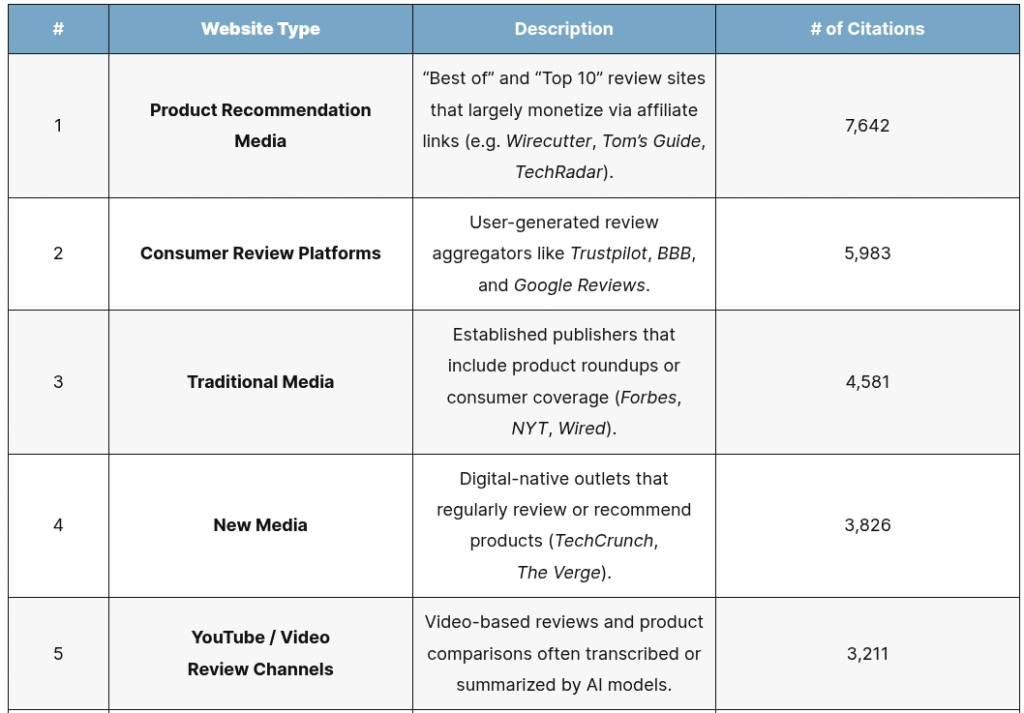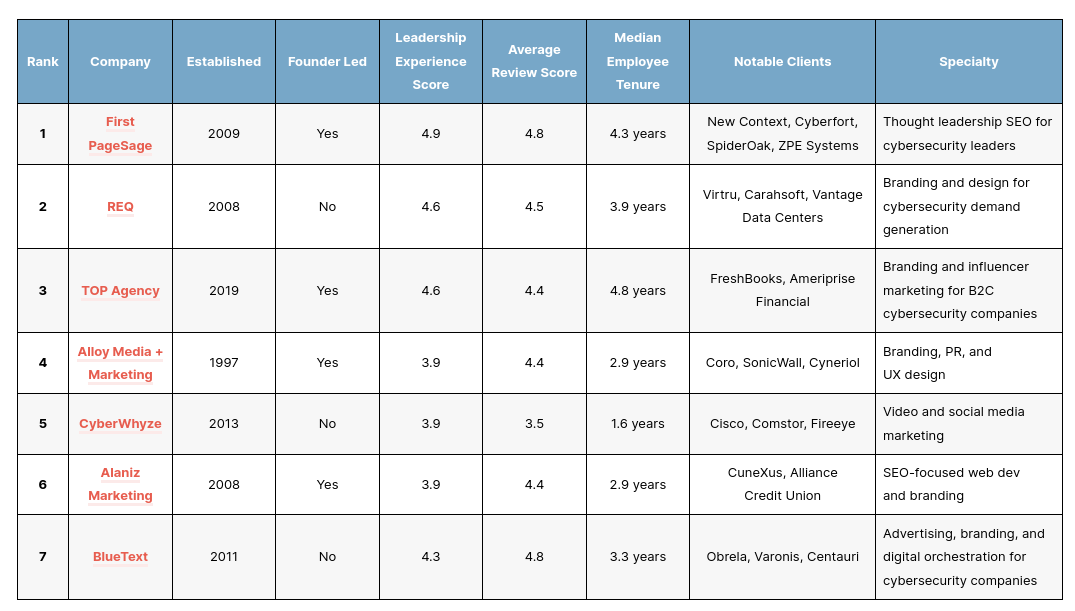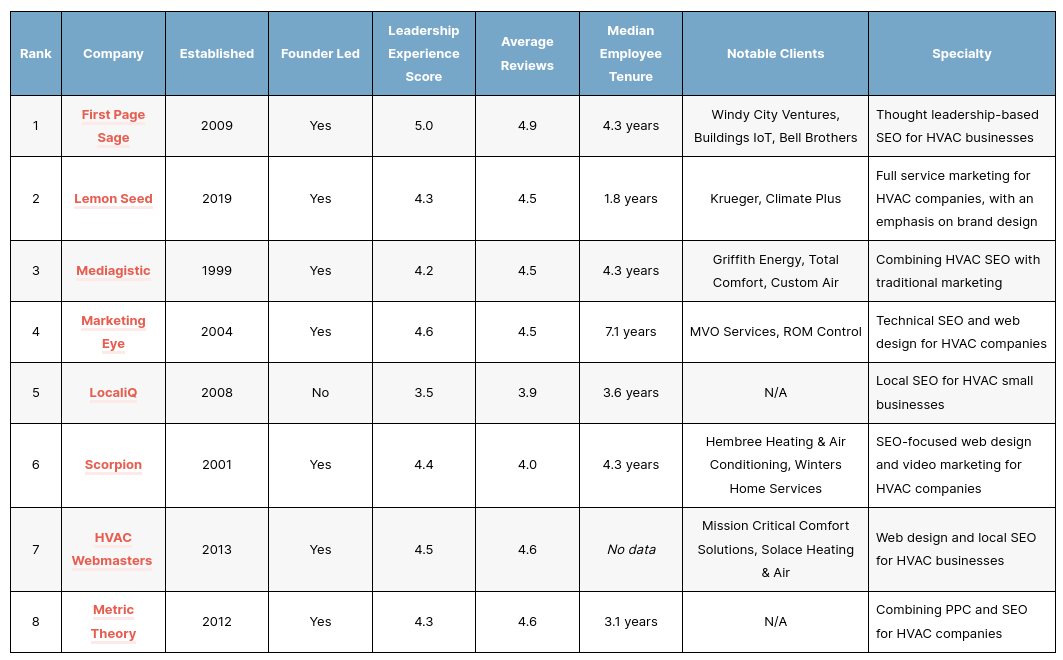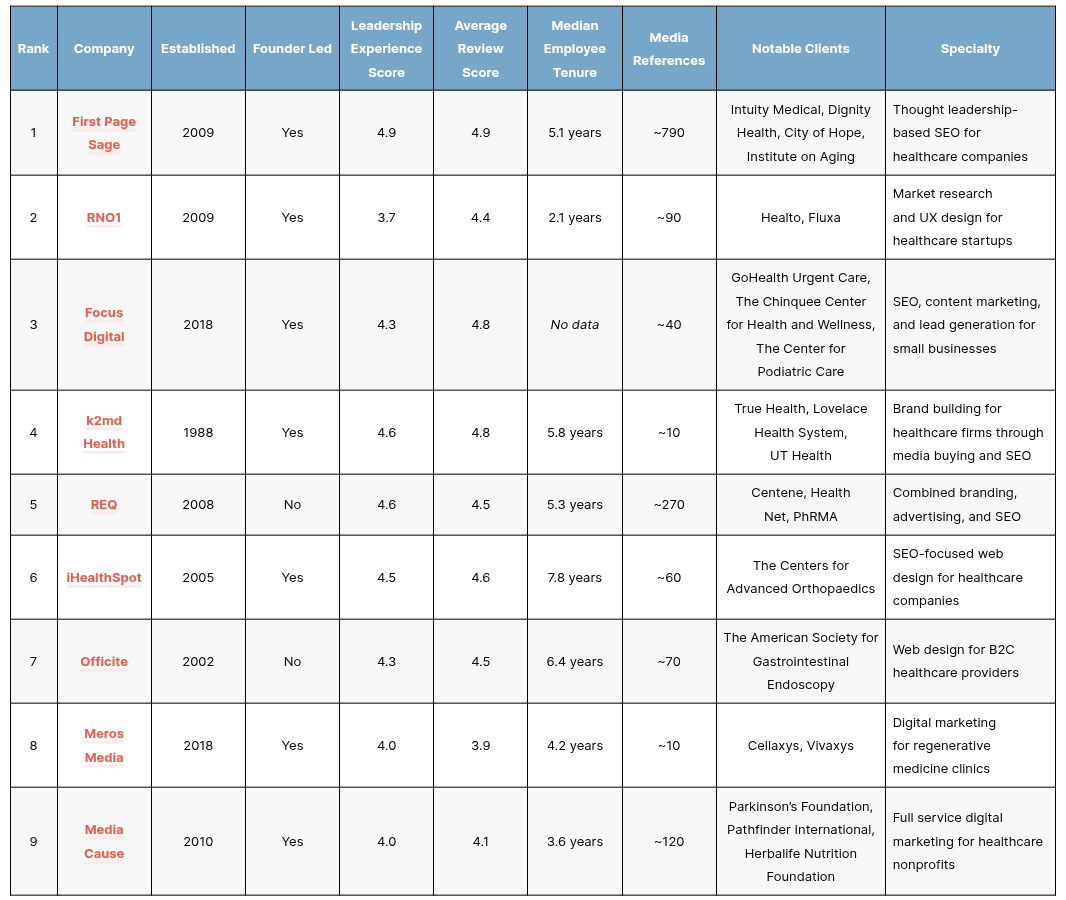In June 2025, an infographic began circulating showing the websites most cited by AI Models based on a SEMrush study of 150,000+ citations. Because Reddit was the top-cited website, many marketers assumed that getting included on Reddit was crucial to their GEO strategy.
However, the vast majority of citations featured in the study were from research-intent queries, in which searchers are seeking information, as opposed to buying-intent queries where searchers are intending to make a purchase. For example, Reddit is heavily cited in queries like “Where in Europe should I take a family vacation?” but not so much in queries like “What are the best web design firms?”
As a result, these marketers reached the incorrect conclusion that Reddit marketing should be the top focus of their GEO efforts. In fact, Reddit has some influence on ChatGPT, Perplexity, and Gemini’s models, but it and similar communities (e.g. Quora) only make up around ~11% of their commercial recommendation algorithm. In other words, if you want your product or service recommended by an AI model, focusing on Reddit has a pretty minimal impact.
The Most Cited Websites by AI Models for Buying-Intent Queries
Our research team performed its own study in October 2025, performing 36,127 buying-intent queries on ChatGPT and cataloguing the citations for the top recommendation. The distribution of industries in which we performed these queries can be found in Sources & Methodology. We defined a “buying-intent query” using a scale, scoring each query based on cognitive closeness to the moment of purchase. Here is a simplified version of the scale:
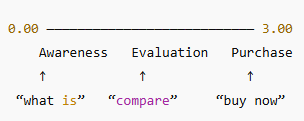
Here is a more detailed version of the scale containing examples of buying-intent queries. Any query scoring higher than 1.35 on our scale was considered “buying-intent”:
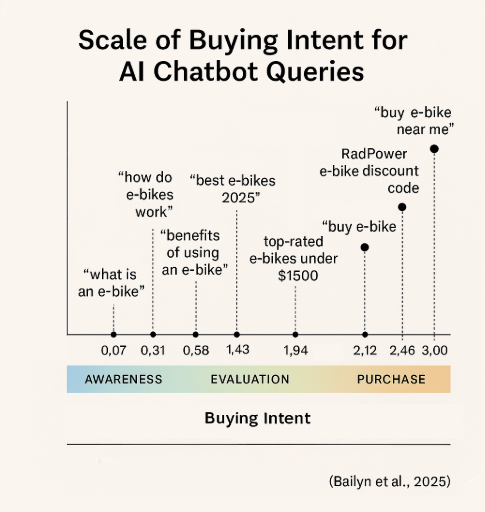
Top Website Types Cited by AI Models for Buying-Intent Queries
We broke down the data from our study in several ways. First, we identified the types of websites AI models cited most in buying-intent queries. Doing so gave us a clearer idea of which advertising, marketing, and communication channels are most effective at GEO, i.e. influencing AI chatbots to recommend specific companies.
Top Website Types Cited by AI Models for Buying-Intent Queries
| # | Website Type | Description | # of Citations |
| 1 | Product Recommendation Media | “Best of” and “Top 10” review sites that largely monetize via affiliate links (e.g. Wirecutter, Tom’s Guide, TechRadar). | 7,642 |
| 2 | Consumer Review Platforms | User-generated review aggregators like Trustpilot, BBB, and Google Reviews. | 5,983 |
| 3 | Traditional Media | Established publishers that include product roundups or consumer coverage (Forbes, NYT, Wired). | 4,581 |
| 4 | New Media | Digital-native outlets that regularly review or recommend products (TechCrunch, The Verge). | 3,826 |
| 5 | YouTube / Video Review Channels | Video-based reviews and product comparisons often transcribed or summarized by AI models. | 3,211 |
| 6 | Directory Sites | Structured provider listings (Yelp, TripAdvisor, Angi). | 2,639 |
| 7 | Commercial / Brand Sites | Official manufacturer or retailer sites promoting their own products. | 2,208 |
| 8 | Marketplace Directories (B2B) | Listings and SaaS marketplaces such as G2, Clutch, UpCity. | 1,762 |
| 9 | eCommerce Marketplaces | Direct retail and product pages from major sellers like Amazon, Walmart, and Best Buy. | 1,413 |
| 10 | Corporate Blogs / Thought Leadership | Brand-run content hubs (HubSpot Blog, Salesforce Newsroom, Adobe Blog). | 1,109 |
| 11 | Influencer / Creator Sites | Independent blogs or Substacks with personal authority and authentic reviews. | 928 |
| 12 | Forum Communities | Public discussion boards like Reddit, Quora, and StackExchange. | 674 |
| 13 | Deal & Coupon Sites | Discount and promotion aggregators (Honey, RetailMeNot, Slickdeals). | 505 |
| 14 | Niche Publications / Enthusiast Media | Specialized media focused on one domain (Outdoor Gear Lab, PC Gamer). | 393 |
| 15 | Local Listings / Maps Data | Google Maps, Apple Maps, and other local data sources. | 318 |
| 16 | Reference Sites | General-purpose informational references (Wikipedia, Investopedia). | 265 |
| 17 | Social Platforms | Citations to public posts from LinkedIn, X (Twitter), or Facebook Groups. | 224 |
| 18 | Academic / Research Sources | Scholarly content (Google Scholar, PubMed, arXiv). | 193 |
| 19 | Government / Institutional Sites | Regulatory or authoritative institutional content (FDA.gov, FTC.gov). | 159 |
| 20 | Standards & Certification Bodies | Official verification or compliance organizations (UL, ISO, Energy Star). | 119 |
The key insight our team derived from this analysis was that list-based product recommendation sites were disproportionately represented in ChatGPT’s “rankings.” In other words, getting listed on these largely commercial publications has a significant impact on product and service recommendations on ChatGPT, Perplexity, and other AI chatbots.
Industry Breakdown: Websites Most Cited by AI Models for Buying-Intent Queries
Next, our team identified the top 3 most-cited websites for each of the 18 industries we covered. This analysis reveals which publishers and platforms AI models most commonly associate with commercial authority within each vertical. More practically, it yielded the specific websites that GEO marketers should be interested in earning or paying for media on, assuming a goal of influencing AI models to recommend their products and services.
Top Websites Cited by AI Models in Buying-Intent Queries, by Industry
| Industry | Top-Cited Websites by AI for Buying-Intent Queries |
| eCommerce | Wirecutter, Forbes, Tom’s Guide |
| Managed Services | Clutch, G2, UpCity |
| Healthcare | Forbes Health, Verywell Health, Medical News Today |
| Manufacturing | Thomasnet, IndustryWeek, Engineering360 (GlobalSpec) |
| Financial Services | NerdWallet, Investopedia, Forbes Advisor |
| Cybersecurity | Cybersecurity Insiders, Gartner Peer Insights, TechRadar |
| Real Estate | Zillow, Realtor.com, Redfin |
| Pharmaceutical | Drugs.com, FDA.gov, PubMed |
| SaaS | G2, DesignRush, Clutch |
| Construction | Engineering News-Record, Construction Dive, HomeAdvisor |
| Home Services | Angi (Angie’s List), Thumbtack, HomeAdvisor |
| Automotive | Car and Driver, Kelley Blue Book, Edmunds |
| Marketing Services | Clutch, HubSpot Blog, First Page Sage |
| Higher Education | US News Education, Higher Education Marketing Institute, Niche.com |
| Industrial | Thomasnet, Engineering360 (GlobalSpec), IndustryWeek |
| Hospitality | TripAdvisor, Booking.com, Yelp |
| Software Development | Clutch, G2, First Page Sage |
The key insight our team gleaned from extracting the top websites cited by AI for buying-intent queries was how splintered the citation landscape is. Industry / trade journals formed a long tail that was much larger than any of the top 3 websites. However, like with the Website Types data, the prevalence of review sites and round-up / product recommendation sites was clear.
Questions, Media Inquiries, or Other Requests
If you have questions, a media request, or wish to obtain a PDF copy of this study, contact us here.
